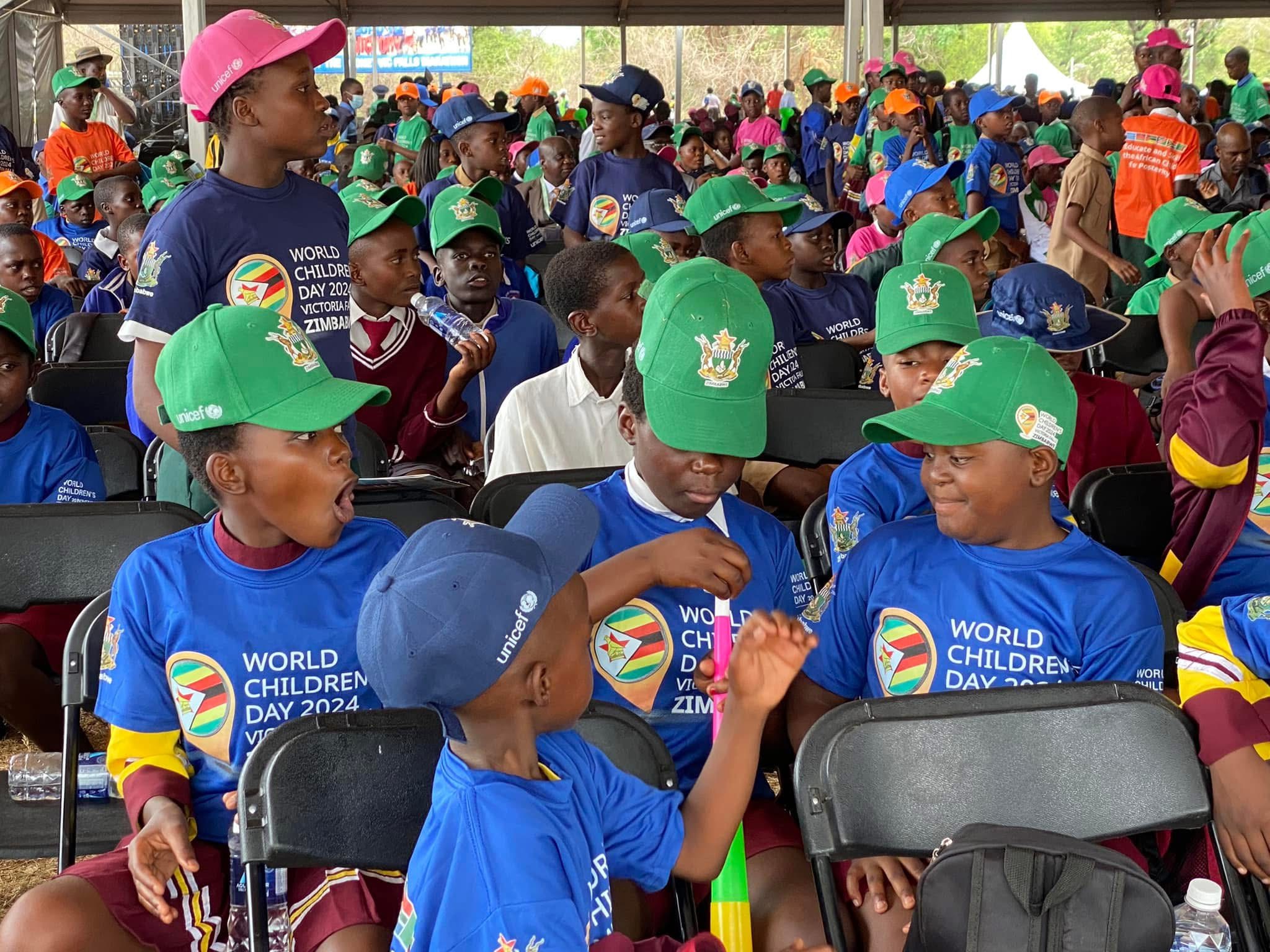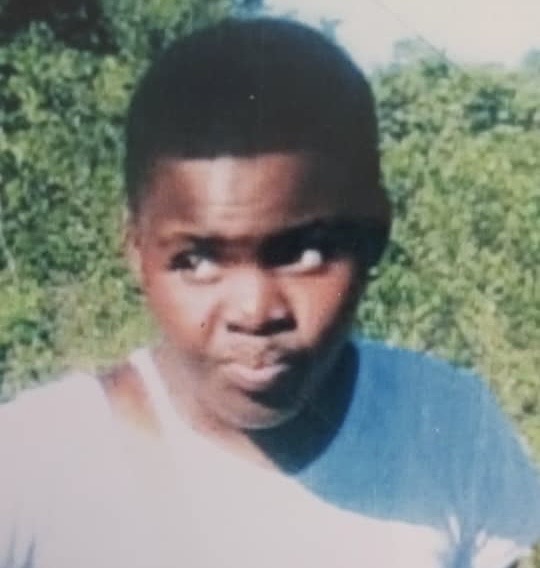BY SIRAK GEBREHIWOT
Victoria Falls – A historic gathering of seven Southern African leaders, international representatives, over 7000 children and youth took place at Baobab Primary School in the resort town of Victoria Falls to commemorate regional World Children’s Day.
The event, attended by dignitaries from across the southern Africa region, emphasized universal dedication to the rights and welfare of children, guided by the UN Convention on the Rights of the Child.
His Excellency President Emmerson Mnangagwa of Zimbabwe extending warm welcome to delegates, underlined the unity and shared goals of the Southern African Development Community (SADC). “Today is a powerful reminder of our collective duty to protect the rights of all children,” he affirmed.
President Mnangagwa’s speech underscored the importance of providing children with quality education and resilience against climate change, all while fostering their sense of identity and pride in their African heritage.
The President expressed gratitude to regional counterparts, particularly President Duma Boko of Botswana, for participating in Zimbabwe’s festivities. In a gesture of regional solidarity, he acknowledged, “Though we hail from different nations, we share a common vision for a vibrant, educated, and united Africa.”
Mr. Edward Kallon, the UN Resident and Humanitarian Coordinator for Zimbabwe, echoed the President’s sentiments. He stressed the significance of this event as a platform to emphasize children’s rights, aligning with the Sustainable Development Goals.
“The UN2.0 and its quintet of change—embracing innovation, technology, and inclusivity—guides the United Nations renewed mission towards a brighter future for all children,” Mr. Kallon stated.
He underscored the UN’s reinvigorated strategy, UN 2.0, aiming for transformational change with children at its core. Kallon called on all stakeholders to remain accountable to the children’s Call to Action, reinforcing the imperative to incorporate young voices in policymaking processes and national development programmes.
Education: A Pillar for Progress
UNICEF Regional Director, Ms. Etleva Kadilli, focused on the transformative power of education. She recognized strides made in various SADC countries that have prioritized digital learning, inclusive education, and curriculum reform. “These advancements illustrate that when governments and educators listen to children and act, significant progress can be achieved,” Ms. Kadilli underlined.
Kadilli acknowledged the persistent challenges facing sub-Saharan Africa, where educational disparities remain stark. She encouraged children present, stating, “Your voices are vital. When you speak, you not only shape your future but ours as well.”
Collective Regional Pledge
His Excellency President Duma Boko of Botswana accepted the honor of hosting the next World Children’s Day commemoration. He pledged his administration’s dedication to addressing the needs and aspirations voiced by the children and youth. “We stand ready to work with you, empowering our children to lead with wisdom and courage,” President Boko assured.
Senior officials from Zambia, Namibia, Mozambique, Malawi, and South Africa echoed these commitments. They affirmed their governments’ resolve to enhance children’s access to quality education, healthcare, and social protection, reinforcing their rights as a priority.
Empowering Through Culture and Heritage
The celebration also spotlighted the role of arts, culture, and heritage in building inclusive societies. President Mnangagwa stressed the importance of embracing cultural identity and utilizing natural resources to foster development and unity. “Let us, together, promote our unique cultural products and enhance our children’s understanding of their heritage,” President ED Mnangagwa encouraged.
Combating Emerging Threats
Addressing contemporary challenges such as climate change and drugs and substance abuse, President Mnangagwa reaffirmed Zimbabwe’s commitment to combating these issues through strategic initiatives like the Presidential Borehole Drilling Scheme and the establishment of Child-Friendly Courts. “Our measures ensure that all children, particularly the vulnerable, have their rights upheld and their futures secured,” he stressed.
A Call to Action and Hope
Ms. Etona Ekole, UNICEF Representative for Zimbabwe said, “This World Children Day, I am incredibly proud to see children from Botswana, Namibia, Malawi, Mozambique, South Africa, Zambia, and Zimbabwe raising their voices for change. Their Call-for-Action is a testament to the power of listening to children and investing in their future.
The event underscored a unified call to invest in children as Southern Africa’s future leaders. With collaborative resolve, the leaders and stakeholders committed to translating discussions into concrete actions, guided by the insights and demands of the children and youth.
Facilitating a call to action from children and youth representatives across seven countries, Ms. Sithabile Mtigo, Speaker of the Junior Parliament of Zimbabwe, highlighted the critical role of young advocates throughout Africa. She declared, “We are the leaders of both the present and the future for Africa.”
The Regional World Children’s Day served as a reminder of the shared journey towards a future where every child’s rights and potential are realized, and every opportunity leveraged.
The commitment made in Victoria Falls to “Educate and Skill the African Child for Posterity” is not only a theme but a driving mission as the African continent marches towards a brighter, more inclusive tomorrow.
SOURCE: Sirak Gebrehiwot is UN Partnerships and Development Finance Advisor at the UN Resident Coordinator’s Office in Zimbabwe


 Slider3 years ago
Slider3 years ago
 National4 years ago
National4 years ago
 Opinion3 years ago
Opinion3 years ago
 Tourism and Environment4 years ago
Tourism and Environment4 years ago
 National2 years ago
National2 years ago
 National3 years ago
National3 years ago
 National2 years ago
National2 years ago
 National4 years ago
National4 years ago



